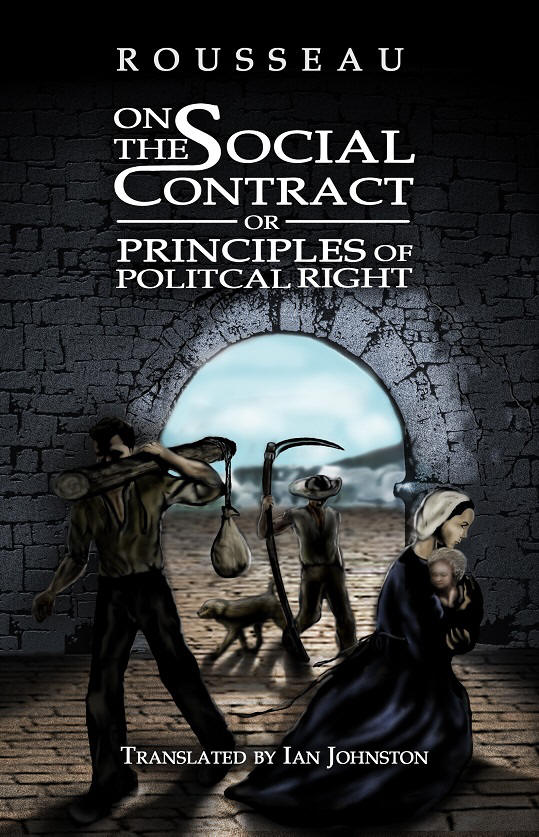Questions? Call us
toll free:
1-800-856-3060
Homepage
Classics/ Philosophy ISBN:
978-1-935238-40-9
USD $9.95
On the Social Contract or Principles of Political Right by Jean Jacques
Rousseau
Translated by Ian Johnston
Long hailed as one of the most original, controversial, and influential
works of modern political theory, Jean-Jacques Rousseau’s On the Social
Contract or Principles of Political Right (1762) sets out to address an
apparently insoluble
difficulty: how can we organize a political community so as to guarantee
its members the complete physical and emotional freedom given to them by
nature, while at the same time ensuring peaceful order and cooperation
within the state. How can we “find a form of association which defends
and protects with full communal force the person and the possessions of
each member and in which each person, by uniting with all, nevertheless
obeys only himself and remains as freeas before.”
Rousseau’s solution to this problem offers a vision of a republican
constitution in which the citizens are free because, as rational beings,
they choose to live in a state where they all have an equal share in the
sovereign power and are all equally subject to the laws established by
the general will of all. No matter what the form of government, in order
to be legitimate, it must be subject to the sovereignty of the people.
On the Social Contract is justly famous as a collectivist response to
the more individualistic liberalism of Hobbes and Locke. For Rousseau
true freedom in the modern state can only be realized if the citizens,
as rational individuals, subordinate their selfish personal desires to
the laws enacted by the general will of all—citizens, he states in one
of his best known and most paradoxical sayings “must be forced to be
free.” Only then can they realize their full potential as free moral
beings.
At Richer Resources, we are dedicated to the creation of high quality books, art and other media intended to enrich the lives of individuals of all ages.
As an independent publisher, we are bound by a sense of integrity and quality to produce products which enhance the lives and vision of individuals everywhere.
Sign up to receive notice of free eBooks, new releases and special subscriber-only offers.
(You can unsubscribe at any time)
